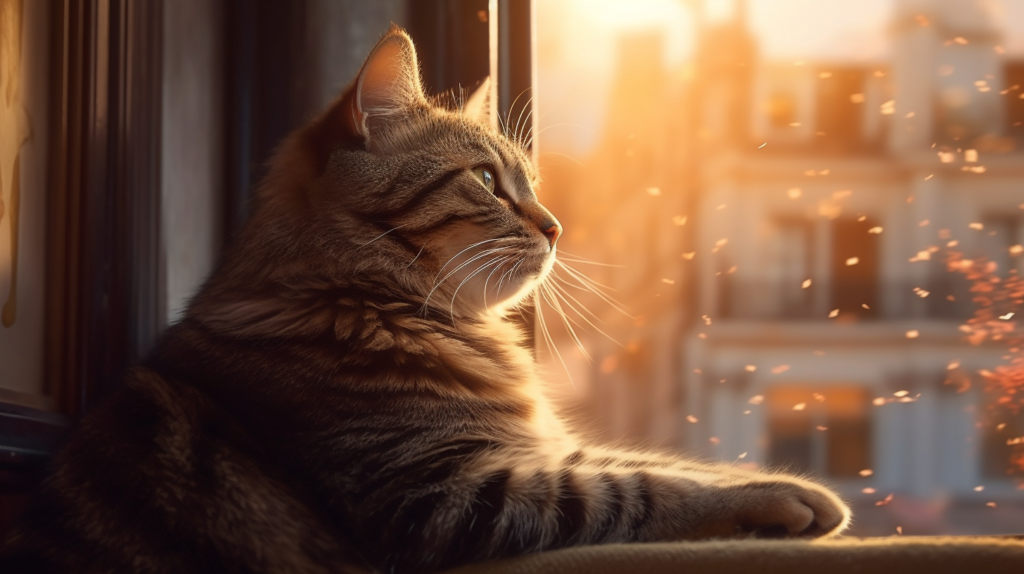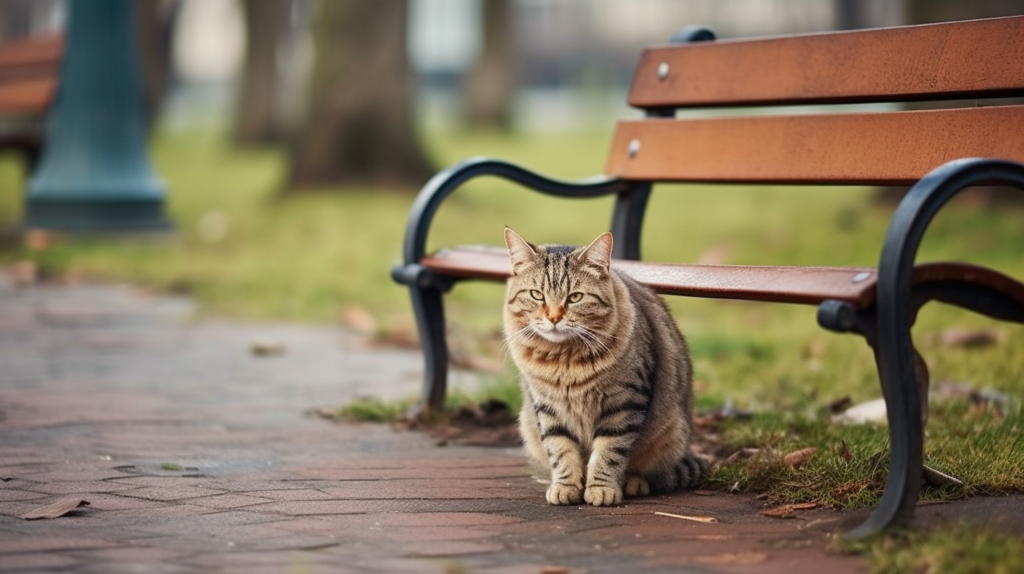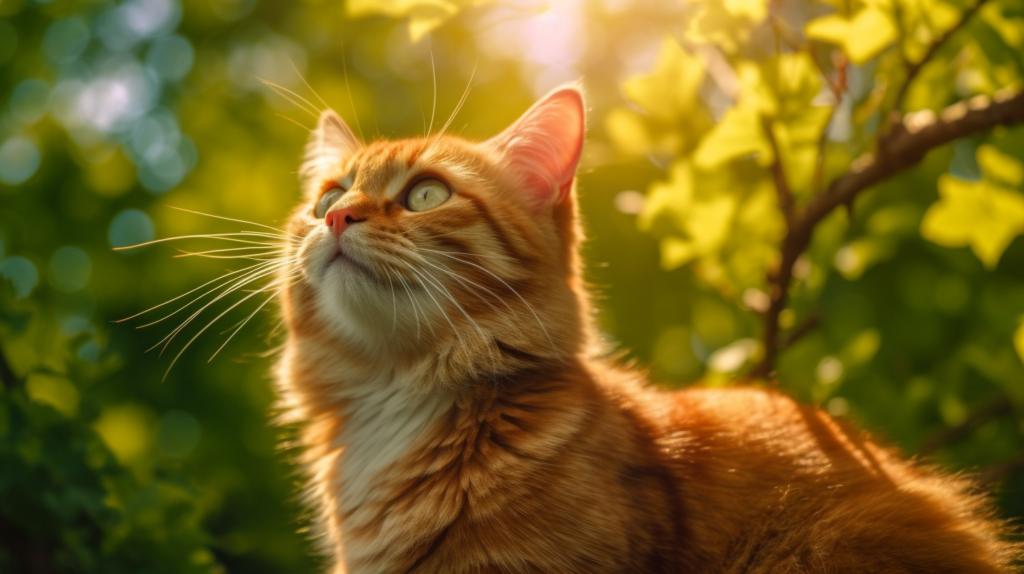As a cat owner, you may have asked yourself whether your feline friend misses you when you’re away. While cats are known for being aloof and independent, they are also social creatures that form deep, emotional bonds with their human companions. Understanding the nature of these bonds and how cats behave when separated from their owners can provide valuable insights into their emotional world.
However, if you’re a cat owner, you may have wondered at some point, “Do cats miss their owners?” This article will explore the depths of feline emotions and the signs indicating whether cats truly miss their human companions.
Key Takeaways
- Cats are capable of forming strong emotional bonds with their owners.
- Cat behavior and responses can indicate their potential for missing their human companions.
- Cats find comfort in routines and familiar surroundings, highlighting their need for stability and security.
- Owners can play a pivotal role in nurturing and strengthening the bond with their cats.
- Creating a supportive environment that caters to the emotional needs of cats is essential for their well-being.
The Nature of Feline Bonds
Before we can determine whether cats miss their owners, it is essential to understand the nature of feline bonds. The cat-human relationship is unique and complex, shaped by various factors such as genetics, environment, and socialization.

Feline bonds are built on trust, respect, and mutual affection. Cats are highly social animals, and their relationship with humans is often likened to a parent-child dynamic. As a result, they rely on their owners for emotional support, comfort, and protection.
Unlike dogs, who form bonds through obedience and a desire to please, cats build relationships based on trust and respect. They are independent creatures who choose to interact with their owners on their own terms, and their affection is earned through mutual respect and trust.
Understanding the nature of feline bonds is crucial in developing a strong and loving relationship with your cat. Earning their trust and respect and providing a nurturing and supportive environment can deepen your bond and enhance your cat’s well-being.
Understanding Cat Behavior

Understanding cat behavior is essential when exploring whether cats miss their owners. Feline psychology comprises their instincts, communication, and socialization.
Cats have developed several unusual behavioral patterns that differentiate them from other animals. They have natural instincts like climbing trees, scratching surfaces, and hunting prey. In the wild, cats live in social groups, and although they may seem solitary, they still have social instincts that influence their behavior.
Cats communicate through a unique set of body language, vocalizations, and scent markings. For example, cats may purr when content or rub their heads against objects to mark their territory.
Their social instincts develop in their first few months of life, and most kittens learn to live with other cats and even dogs. Still, as adult cats, they can become solitary and territorial, referring back to their natural instincts.
Understanding the complexity of feline psychology offers insights into how cats perceive their environment, communicate with their owners, and respond emotionally to absence.
The Importance of Routine and Familiarity
As creatures of habit, cats find solace and security in predictable routines and familiar environments. This is why maintaining a consistent schedule for feeding, playtime, and sleep is crucial for your cat’s well-being.
Providing a stable and familiar environment makes your cat feel safe and comfortable, reducing stress and anxiety. This is especially important during periods of absence when your cat may feel particularly vulnerable.

Ensure that your cat has a designated space that is their own, complete with their bed, scratching post, and toys. This will help create a sense of familiarity and ownership, giving them a space to retreat to when they need to feel safe.
The Importance of Routine and Familiarity
“Cats thrive on stability and familiarity, and a consistent routine provides them with the sense of security they need to feel safe and content.”
Regular playtime lets your cat release pent-up energy and maintain physical and mental stimulation, leading to better overall health. Sticking to a set feeding schedule can help establish trust and reinforce the bond between you and your cat.
Of course, unexpected disruptions to your cat’s routine are inevitable. However, by keeping changes to a minimum and providing ample time for acclimation, you can help minimize any potential negative effects on your cat’s emotional well-being.
In summary, prioritizing routine and familiarity in your cat’s life can significantly impact their emotional health and well-being, especially during periods of separation. Creating an environment that caters to their needs can help strengthen the bond between you and your feline companion.
Sensitivity to Human Absence
Cats are highly sensitive creatures and have a unique way of perceiving their environment. As a result, they can sense changes in their surroundings, including the absence of their owners.
When you leave the house for an extended period, your cat may become more vocal or exhibit changes in behavior, indicating their sensitivity to human absence. This sensitivity is due to their innate social instincts and their bond with their owners.
When separated from their owners for extended periods, cats may display signs of distress or anxiety, such as excessive grooming, hiding, or decreased appetite. While these responses may vary among cats, they are a testament to the strength of the bond between cats and their owners.
Recognizing and respecting your cat’s sensitivity to human absence is essential, even if they don’t exhibit any noticeable behavioral changes. Providing consistent love and care is crucial to nurturing their emotional well-being and alleviating any potential distress.
Signs of Cats Miss Their Owner
As a cat owner, you may wonder whether your feline companion misses you when you’re away. While cats don’t express emotions in the same way humans do, there are several signs that indicate they may be missing their owners.
Increased Vocalization: If your cat is usually quiet but becomes more vocal when you’re away, it may be a sign that they’re missing you. They may meow or cry more frequently, seeking your attention and affection.
Changes in Appetite: Cats are creatures of habit, and sudden changes in their food intake may indicate they’re feeling stressed or anxious due to your absence. Depending on their personality and response to separation, they may eat less or more than usual.
“Cats may meow or cry more frequently, seeking your attention and affection.”
Increased Grooming: Cats groom themselves to relieve stress, and an increase in this behavior may indicate they’re trying to cope with your absence. However, excessive grooming may lead to skin irritation or hair loss, so monitoring their behavior and intervening if necessary is essential.
Changes in Sleeping Habits: Cats are creatures of routine and may become restless or agitated if their usual sleeping pattern is disrupted due to their absence. They may nap more frequently or find alternative sleeping spots to compensate for their absence.
By understanding the signs of missing their owners, you can better cater to your cat’s emotional needs and provide comfort and security during periods of separation.
Bond Strengthening Techniques
To deepen your bond with your cat and promote their well-being, here are some tips and techniques:
Quality Time
Spend time with your cat daily, playing games, petting or grooming them. This one-on-one time helps them feel loved and secure in your presence.
Positive Reinforcement
Reward good behavior with treats or praise. By reinforcing positive actions, your cat will associate good behavior with positive outcomes and feel more connected to you.
Environmental Enrichment
Provide an environment that stimulates your cat’s senses. This can include toys, scratching posts, perches, or even a window perch to watch birds outside. Cats that feel stimulated and engaged are happier and more content.
Communication
Learn to recognize your cat’s body language and vocalizations. Responding appropriately to their cues helps them feel understood and connected to you.
Cuddles and Affection
Cats may not be as affectionate as dogs, but they still crave physical contact. Snuggle with your cat, pet them, and give them plenty of attention. Physical affection helps strengthen the bond between you and your feline companion.
Incorporating these techniques into your daily routine can strengthen your bond with your cat and promote their well-being. A strong connection with your feline friend benefits them and enhances your life as a cat owner.
Do Cats Show Signs of Missing Their Owners When Meowing to Go Outside?
Cats may exhibit understanding cat behavior signals when they meow to go outside. This could be a sign of missing their owners as they seek human connection. The meowing is their way of communicating their desire for attention or companionship, showing their attachment to their owners.
Creating a Supportive Environment
Creating a supportive environment for your cat is crucial to their emotional well-being. As a pet owner, you must provide a safe, comfortable space where your feline companion can flourish. Here are some tips for catering to your cat’s emotional needs:
“A cat’s environment has a profound effect on their mental and physical health. A supportive atmosphere is key to promoting their well-being.”
Provide Comfortable Sleeping Areas
Cats love to sleep and spend most of their day doing so. Providing comfortable sleeping areas for your cat is essential to their well-being. It’s best to create multiple resting spots throughout your home, ensuring that your cat has plenty of options for finding a cozy place to curl up.
Encourage Play and Activity
Cats need stimulation to thrive, and playtime is essential to their routine. Encouraging play and activity can keep your cat mentally and physically healthy. Provide toys, scratching posts, and other interactive items to engage and entertain your feline companion.
Cater to Their Nutritional Needs
Nutrition is critical to a cat’s well-being, and providing a balanced and healthy diet is essential. Ensure your cat has access to fresh water and high-quality food that meets their nutritional needs.
Offer Affection and Attention
Cats crave affection and attention from their owners, and providing this can strengthen your bond and promote your cat’s well-being. Spend time with your feline friend, offer snuggles and playtime, and provide plenty of love and praise.
Create a Safe and Secure Environment
Cats are curious creatures who need a safe and secure environment to explore. Ensure your home is free from hazards like poisonous plants, electrical cords, and sharp objects. Providing a safe and secure space will give your cat the confidence to explore and thrive.
By creating a supportive environment that caters to your cat’s emotional needs, you can ensure that they feel loved, secure, and content. Fostering a positive environment can strengthen your bond with your feline companion and promote their overall health and well-being.
Long-Term Separation Considerations

Long-term separation can be a significant source of stress for a cat, potentially leading to emotional and behavioral problems. As a responsible pet owner, it is essential to consider your feline companion’s well-being when faced with extended absences.
Some factors to consider include:
To mitigate any potential distress, consider the following strategies.
By easing your cat’s separation anxiety and ensuring their emotional well-being, you can minimize the impact of long-term separation and maintain a strong, healthy bond with your feline friend.
Conclusion
In conclusion, as a cat owner, it is essential to recognize the unique nature of the bond between felines and humans. While there is no conclusive evidence that cats miss their owners in the same way that humans miss each other, their behavior and responses indicate a deep emotional connection.
To ensure the well-being of your feline companion, it is vital to provide a supportive environment that caters to their needs. This includes maintaining a routine and familiarity, creating a calm and comfortable atmosphere, and nurturing the relationship through play, cuddles, and bonding techniques.

Hello there, I am Iftekhar Ahmed. I am the owner of Mishka & The Cat Corners. I love to explore and write on various topics about cats

